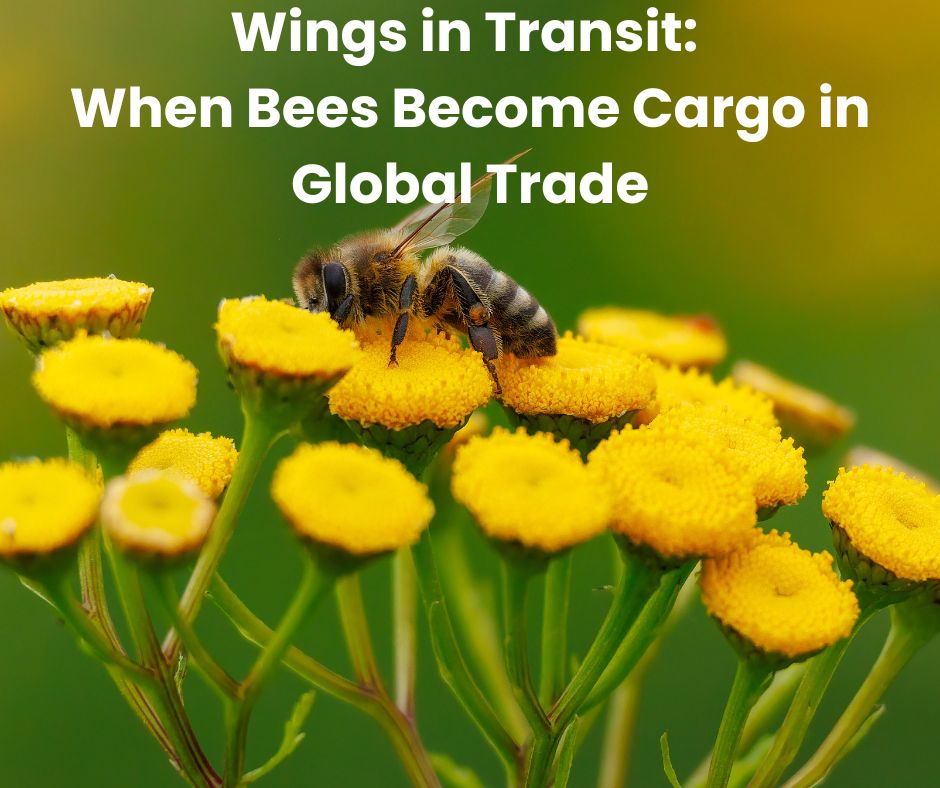Wings in Transit: When Bees Become Cargo in Global Trade

Pollinators are not only the unseen workforce behind the world’s crops—they are sometimes literally commodities in the global economy.
Bees, transported across continents in carefully managed shipments, highlight a fascinating intersection between ecology and commerce, where living creatures become essential cargo sustaining agriculture worldwide.
Australia’s Global Role
Australia plays a particularly prominent role in this dynamic. With over 670,000 commercial hives, the country supports pollination for high-value crops like almonds, macadamias, and melons.
Many of these colonies are air-freighted to international markets, ensuring that orchards and farms across the globe receive the pollination services they need. Australia’s bees are both ecological agents and economic exports, bridging ecosystems and markets across borders.
Logistics and Biosecurity
Transporting living pollinators is far from simple. Maintaining the health of bee colonies in transit requires meticulous attention to temperature, humidity, and stress levels, alongside strict quarantine and biosecurity compliance to prevent the spread of disease.
Each shipment is a delicate balancing act—one misstep could jeopardize both the bees’ health and the crops that rely on them.
Economic Significance
Successful transport of pollinators directly impacts crop yields, export volumes, and global food security.
By ensuring that colonies arrive healthy and ready to work, farmers and governments protect both local and international supply chains, supporting economies that depend on reliable agricultural production.
In essence, the wings of bees carry far more than pollen—they carry economic stability, trade relationships, and the food security of millions.